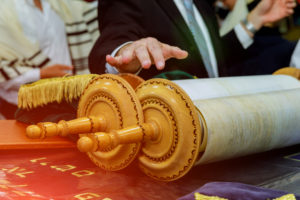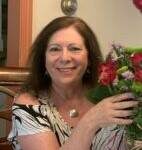
By Rabbi Gregory Marx
Parshat Matot-Masei
Numbers, chapter 35 speaks about the Ir Miklat, or the six cities of refuge.
These cities, spread all over Israel and beyond, were places to which an unintentional manslayer could flee and find shelter in the event of an accidental death. The relatives of the deceased would have no access to the offender to exact vengeance. The offender would be safe in the city of shelter. From this idea, the church developed the idea of making a cathedral a “sanctuary” — a place where the police could gain no access.
According to the Sefer Hachinuch, a medieval commentary, the city of shelter had three purposes.
The first was repentance. The person who committed manslaughter could realize and regret his deed. Living in the city of refuge was a respite, a protective haven where the perpetrator lived cut off from his family and friends. It provided an opportunity for spiritual growth and teshuvah.
The second was physical safety. In a world of “an eye for an eye,” the city of refuge removes the manslayer from society so that the victim’s family will not be able to exact retribution. Law enforcement today uses this idea by offering a protective custody system or the witness protection program.
The third reason was emotional. The relatives of the victim didn’t have to see the perpetrator every day and be constantly reminded of their pain. The Ir Miklat protected the family member of the victim by not forcing the bereaved to see their loved one’s killer every day on the street.
In short, the Ir Miklat, the city of refuge, was a spiritual, physical and psychological retreat.
Once the Jews were exiled from Israel in 135 CE, the six cities lost their status as refuges. The word miklat, or shelter, fell out of use. But when the state of Israel was created and Hebrew was resurrected, the word took on a whole new meaning.
The father of modern Hebrew, Eliezer Ben Yehuda, was brilliant in fashioning words to express modern phenomenon. As there was no biblical word for telephone, and Hebrew was not a spoken language, Ben Yehuda needed to create a modern word for it. Ben Yehuda created words for telephone, television and the like. For bottle, he used the onomatopoetic sound that a glass bottle makes when milk pours out … “Bakbuk.”
So what name do you think Ben Yehuda came up with for a bomb shelter? Ben Yehuda named these shelters “Ir Miklat,” after the cities of refuge. Thousands of shelters, or miklatim, in rural kibbutzim and modern cities, in shopping malls and hospitals offer protective housing to Israelis. Most Israelis don’t make the connection between their miklat and the biblical Ir Miklat, but both are shelters.
Where do we go when we need to find shelter? For many, it is our homes, our families. We find shelter in the loving embrace of our family. We can find shelter in the presence of God through prayer and reflection. All of these are essential.
I found it recently as I conducted a wedding for some Israelis. As the bride came down the aisle, the family played familiar Israeli tunes that I heard when I was in high school back in the 1970s. I felt like I was home again. Others still go to our synagogues, which are a spiritual shelter where we can pray, grow, learn and repent. Synagogues are place for reflection, safety, restoration and where we can be who we are. We can speak of our support for Israel without being concerned that someone might overhear.
Close to 4,000 years ago, our people knew that we would need shelter. They knew that we would need a place to repent, feel safe and find reconciliation. They build six cities all across Israel to which people could flee. Those refuges no longer exist, but today we know otherwise. May we find, this summer, shelter in our families, communities, shuls, Israel and the loving embrace of those we adore. Let love be our shelter from life’s storms.
Rabbi Gregory S. Marx serves as the senior rabbi of Congregation Beth Or in Maple Glen. The Board of Rabbis of Greater Philadelphia is proud to provide diverse perspectives on Torah commentary for the Jewish Exponent. The opinions expressed in this column are the author’s own and do not reflect the view of the Board of Rabbis.





